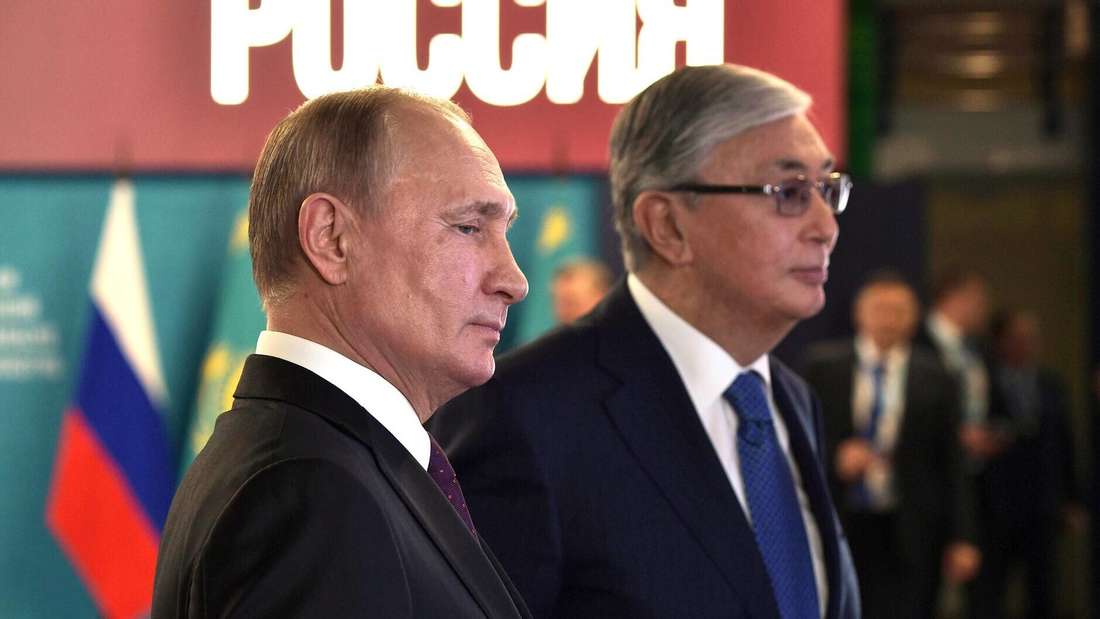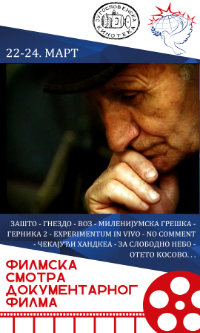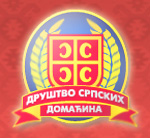Coup in Kazakhstan - another provocation by Russia?
| Activities - Comments |

Wolfgang Effenberger
On December 30, 2021, Presidents Biden and Putin held a telephone conversation that focused on the implementation of the agreement to begin negotiations on the draft bilateral treaty with Washington on granting legally binding security guarantees to Russia that Putin published on December 17, 2021. This treaty provides for guarantees of peace.
On December 17, 2021, Moscow had published a draft bilateral treaty with Washington, which provides for guarantees for peace, as well as a draft agreement on its implementation.(1) Russia's overall intentions are aimed at getting the United States to comply with the United Nations Charter.
In their late December talks, both leaders agreed to engage in a serious and substantive dialogue on these issues. Negotiations are scheduled to take place in Geneva on Jan. 10 and then at the Russia-NATO Council in Brussels on Jan. 12 - followed by negotiations with the OSCE on Jan. 13.
Three days after the hopeful talk between Biden and Putin, protests erupted in western Kazakhstan on January 2, 2022, after the government refused to continue to keep liquefied natural gas fuel prices low through subsidies.(2) The doubling of the price (from 60 tenge/0.12euro to 120 tenge/0.24 EUR per liter of liquefied natural gas) reportedly brought citizens into the streets. Although Kazakh President Qassym-Shomart Toqaev capped gas prices, the country did not calm down. As a result, demonstrators invaded the offices of the ruling party Nur Otan, took control of numerous public buildings in Kazakhstan, partially setting them on fire, such as the mayor's office in Almaty, stormed national television stations, destroyed military vehicles and disarmed soldiers.
On the afternoon of January 5, Reuters news agency and the independent Telegram channel Orda reported that protesters had occupied the airport of the important economic city of Almaty in the south of the country.(3)
On the evening of the same day, Kazakhstan's president asked the Russian-led "Collective Security Treaty Organization" (CSTO) for assistance against a terrorist threat. The security alliance - Russia, Kyrgyzstan, Armenia, Belarus, and Tajikistan - sent army personnel to the former Soviet republic to protect the government. The very next day, 2,500 troops from the alliance arrived at the now liberated Almaty airfield. Given the volatile situation in Ukraine, this rapid response is hardly surprising. While China supported Kazakh President Qassym Shomart Toqaev and declared that color revolutions inspired by external forces were unacceptable, the West, as expected, expressed concern about the deployment of CSTO troops.
By the night hours of January 7, the city center and all administrative buildings in Almaty, except one of the hospitals were already completely under the control of state security forces.
In all, there were dozens of deaths on both sides, about 1,000 injured, and about 4,000 arrests.(4)
On suspicion of treason, the former head of Kazakhstan's domestic intelligence service, Karim Massimov, was arrested after being fired earlier in the violent protests.(5)
Wolfgang Effenberger
On December 30, 2021, Presidents Biden and Putin held a telephone conversation that focused on the implementation of the agreement to begin negotiations on the draft bilateral treaty with Washington on granting legally binding security guarantees to Russia that Putin published on December 17, 2021. This treaty provides for guarantees of peace.
On December 17, 2021, Moscow had published a draft bilateral treaty with Washington, which provides for guarantees for peace, as well as a draft agreement on its implementation.(1) Russia's overall intentions are aimed at getting the United States to comply with the United Nations Charter.
In their late December talks, both leaders agreed to engage in a serious and substantive dialogue on these issues. Negotiations are scheduled to take place in Geneva on Jan. 10 and then at the Russia-NATO Council in Brussels on Jan. 12 - followed by negotiations with the OSCE on Jan. 13.
Three days after the hopeful talk between Biden and Putin, protests erupted in western Kazakhstan on January 2, 2022, after the government refused to continue to keep liquefied natural gas fuel prices low through subsidies.(2) The doubling of the price (from 60 tenge/0.12euro to 120 tenge/0.24 EUR per liter of liquefied natural gas) reportedly brought citizens into the streets. Although Kazakh President Qassym-Shomart Toqaev capped gas prices, the country did not calm down. As a result, demonstrators invaded the offices of the ruling party Nur Otan, took control of numerous public buildings in Kazakhstan, partially setting them on fire, such as the mayor's office in Almaty, stormed national television stations, destroyed military vehicles and disarmed soldiers.
On the afternoon of January 5, Reuters news agency and the independent Telegram channel Orda reported that protesters had occupied the airport of the important economic city of Almaty in the south of the country.(3)
On the evening of the same day, Kazakhstan's president asked the Russian-led "Collective Security Treaty Organization" (CSTO) for assistance against a terrorist threat. The security alliance - Russia, Kyrgyzstan, Armenia, Belarus, and Tajikistan - sent army personnel to the former Soviet republic to protect the government. The very next day, 2,500 troops from the alliance arrived at the now liberated Almaty airfield. Given the volatile situation in Ukraine, this rapid response is hardly surprising. While China supported Kazakh President Qassym Shomart Toqaev and declared that color revolutions inspired by external forces were unacceptable, the West, as expected, expressed concern about the deployment of CSTO troops.
By the night hours of January 7, the city center and all administrative buildings in Almaty, except one of the hospitals were already completely under the control of state security forces.
In all, there were dozens of deaths on both sides, about 1,000 injured, and about 4,000 arrests.(4)
On suspicion of treason, the former head of Kazakhstan's domestic intelligence service, Karim Massimov, was arrested after being fired earlier in the violent protests.(5)

A picture of Joe Biden being flanked by Massimov and his son Hunter can be found on the web.
On January 7, U.S. Secretary of State Antony Blinken commented on the tense situation in Kazakhstan. In doing so, he questioned the role of the Collective Security Treaty Organization (CSTO) and warned Kazakhstan's leaders against assistance from Russia:
"One lesson of recent history is that once the Russians are in your house, they are sometimes very difficult to get rid of."(6)
A few hours later, the Russian Foreign Ministry called this statement by Blinken "boorish" and "poisonous," defending the CSTO mission in Kazakhstan and calling it entirely legitimate. At the same time, Russian diplomats pointed out to the U.S. Secretary of State their lessons of history:
"When U.S. people show up at your house, sometimes it's hard to stay alive without being robbed and raped." (7)
That, he said, is the lesson of the U.S.'s 300-year history. The original inhabitants of the North American continent, the Koreans, the Vietnamese, the Iraqis, the Panamanians, the Yugoslavs, the Libyans, the Syrians, and many other unfortunates in whose homes this uninvited guest has found himself, have had this experience.(8)
On January 9, the Kazakh Interior Ministry announced that more than 5,000 people had been arrested during the severe riots countrywide. Among other things, they are accused of destroying more than 100 shopping malls or bank buildings, Acting Interior Minister Erlan Turgumbayev told TV station Chabar 24.(9) During the riots, some 400 vehicles were destroyed, most of them police cars, he said. President Kasym-Shomart Tokayev ordered a day of national mourning for Monday, January 10, 2022. The nationwide state of emergency is to last until January 19.
China's early assessment that the violent protests were an attempt at a "color revolution" seems to be an understatement. The targeted attack on the state and the willingness to use brute force at a very early stage suggests a managed coup attempt. As in Ukraine, nationalist groups were at work, carrying out the actions well prepared. It cannot be ruled out that they were supported by former Afghanistan fighters.
Who would have an interest in overthrowing Kazakhstan? Kazakhstan's northern border with Russia is over 7,000 kilometers long, and its southeastern border with China is just under 1,600 kilometers long. Thus, the situation in Kazakhstan is critical to both the internal and external security of Russia and China. For a war against Russia and China, on the other hand, Kazakhstan is a strategically important "aircraft carrier."
The U.S. long-term strategy document TRADOC 525-3-1, Win in a Complex World 2020-2040 (2014), identifies the threat posed by Russia and China first - a threat that must be dismantled. What the dismantling of a threat to armed forces means probably needs no further explanation.
After the dissolution of the Warsaw Treaty Organization and the Soviet Union, the United States produced TRADOC Paper 525-5, "A Concept for the Evolution of Full-Dominance Operations for the Strategic Army of the Early Twenty-First Century," in August 1994.
(A Concept for the Evolution of Full-Dominance Operations for the Strategic Army of the Early Twenty-First Century).(10)
According to this script, the transition from the 20th to the 21st century was to occur over two decades (from 1990 to 2010) using the steps of Turmoil, Crisis, Conflict, and finally War. This procedure could be observed from Iraq to Ukraine. Instruments for the provoked overthrows are the dynamic forces (Dynamics Forces at Work) with the goal of geostrategic alignment. For this policy, the Operations Other Than War tool was created (Figure 1-2- Operating Enviroment and Missiosn of U.S. Forces):

With the alternative operations (upper circle OOTW), it can then go to the regional conflicts (left circle) and even to a major war (right circle). And all three circles have a common intersection! Operations preceding a war include:
Civil Support (Civil Support)
Disaster Relief
Peace Operations
Counterinsurgency
Arms Control
Counterterrorism
Environmental Operations
Noncombatant Evacuation.
The war entry options listed in OOTW are quite serious. Figure 2-3 (Scope of Future Operations) shows this spectrum for future operations:

These range from relief operations in Somalia/Bosnia/Northern Ireland to combat (against infantry) in Afghanistan up to combat between complex adaptive forces and armored mech forces as in Iraq (Operation Desert Storm).
For 30 years, the U.S. has tried by all means to implement its unipolar world concept. After the 2014 upheaval in Ukraine, Russia refused to be provoked and instead, in an unusual move in mid-December 2021, conveyed its wishes to the U.S. and NATO in two treaties ready to be signed.
John Herbst, who was U.S. ambassador to Ukraine during the 2004 Orange Revolution, makes clear, "Moscow's demands are simply unacceptable."(11)
On January 10, 2022, talks between U.S. Deputy Secretary of State Wendy Sherman and her Russian counterpart Sergei Ryabkov will begin in Geneva, Brussels, and Vienna. Ahead of the Russian-U.S. talks, John Herbst has called for faster arms deliveries to Ukraine. The former U.S. ambassador to Kiev believes the crisis in Kazakhstan could save Ukraine.(12)
Now, however, the coup appears to have been put down; thus, Putin may even enter the negotiations stronger.
Let us hope that the talks will serve peace.
Notes
1)“Draft Treaty betweeen the USA and Russia on Security Guarantees“ Voltaire Network vom 17 December 2021https://www.voltairenet.org/article215162.html
2)https://de.rt.com/international/129474-wie-proteste-in-kasachstan-gewalttaetig-wurden/
3)https://www.spiegel.de/ausland/kasachstan-demonstranten-besetzen-flughafen-in-almaty-a-b6812d2e-3d0a-4450-aaf5-6cfed6e9fb36
4)https://de.rt.com/asien/129430-live-ticker-zur-krise-in-kasachstan-ausnahmezustand-ganzen-land/
5)https://www.n-tv.de/der_tag/Kasachstan-Ex-Sicherheitschef-wegen-Landesverrats-festgenommen-article23044603.html;
https://azertag.az/de/xeber/Kasachstan_nimmt_ehemaligen_nationalen_Sicherheitschef_wegen_des_Verdachts_des_Hochverrats_fest-1970488
6)https://de.rt.com/asien/129628-russland-weist-us-kritik-an/
7)https://de.rt.com/asien/129628-russland-weist-us-kritik-an/
8)Vgl. ebd.
9)https://www.nzz.ch/international/putin-laesst-in-den-ukraine-gespraechen-mit-biden-kaum-spielraum-ld.1663573
10)https://www.help4you.info/pdf/19940801_TRADOC_Pamphlet_525-5.pdf
11)https://www.nzz.ch/international/putin-laesst-in-den-ukraine-gespraechen-mit-biden-kaum-spielraum-ld.1663573
12)https://www.nzz.ch/international/putin-laesst-in-den-ukraine-gespraechen-mit-biden-kaum-spielraum-ld.1663573
| < Prev | Next > |
|---|
| Overstatement from Davos 2017. |
Liberal corporative capitalism, for reasons of lowering traveling costs, proposed not to travel to history alone but packed togather with NATO, EU and unipollar World Order. Workers participation has good chances to step in provisionally, buying time for full scale workers selfmanagment. |









